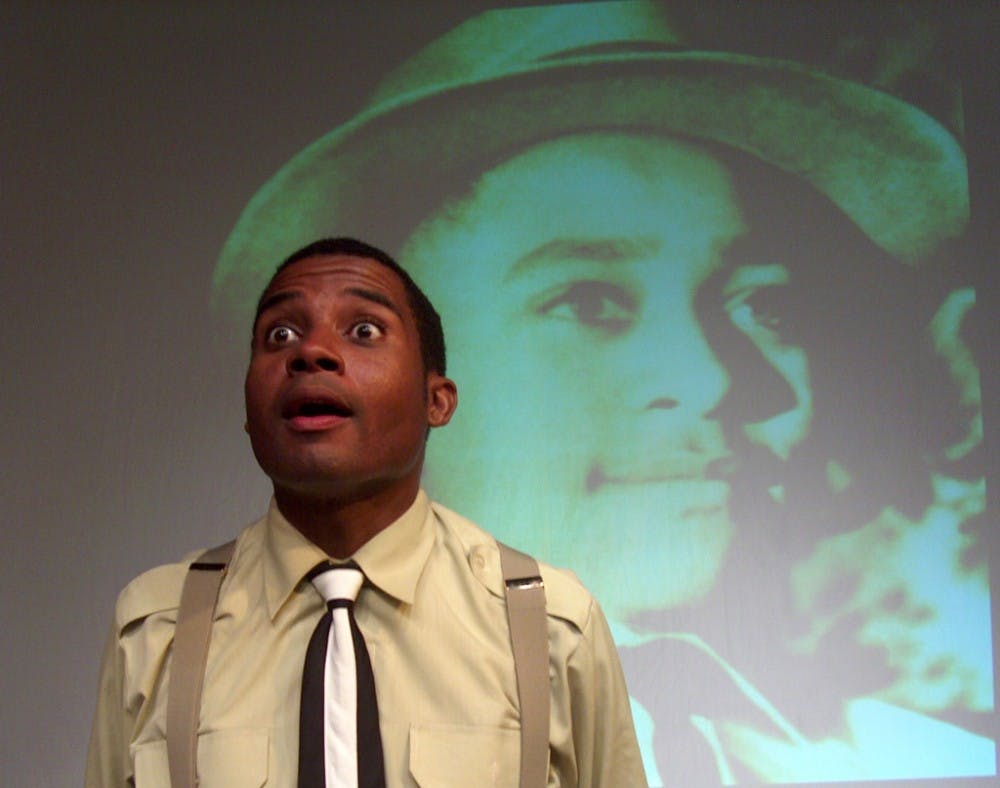Recess: Where are you?
Mike Wiley: I’m in Lenoir, N.C. My production The Parchman Hour is now part of the NC Arts Councils cARTwheel program, which gives undeserved counties professional theater productions presented to the youth in their communities.
R: Tell us more about The Parchman Hour.
MW: As part of my teaching classes between Duke and UNC in documentary theater, I developed a documentary theater piece called The Parchman Hour, which is about the Freedom Riders of 1961. As you know, we’ve also just made Dar He, my play, into a full-length feature film. We just found out today that we won Best Feature at the North Carolina Black Film Festival.
R: Congratulations! I saw that you also won the festival’s Best Actor award for your work in Dar He, congratulations.
MW: Thank you very much.
R: How did Dar He come to be?
MW: Dar He started, for me, as just an idea. A wish, really, that I could teach as many young people, particularly teenagers, about Emmett Till. I felt that the memory of Emmett Till was being lost; his name was being used in rap lyrics without true context and understanding, and that angered me. So I decided to write a piece for the stage, a piece that had cinematic qualities to it, like flashbacks and a non-linear narrative. I play multiple characters in the piece, but I wrote it and perform it in a way that all audiences can understand and relate to and enjoy.
R: How did you decide to convert it to a feature film?
MW: I met Rob and Aravind through a mutual friend, and they were looking to develop some sort of solo piece. I already had a number of solo pieces under my belt as well as memorized so it seemed like a pretty good fit. Our relationship started with two short films [Empty Space and Wolf Call] before the full-length feature. The play is so very cinematic that converting it was a no brainer for me. What wasn’t a no brainer was when Rob and Aravind approached me to film Dar He, with me playing all 36 roles. I always envisioned it being a film, but I never envisioned me playing all the roles. I play a number of women in the play and I never change costumes. The audience uses their imagination to envision what the women are wearing. We couldn’t quite do that for the film because we didn’t want to go drag show, we didn’t want to go kitsch or just plain silly. We wanted people to take the female characters as seriously as they take any other character. The onus is on me with my acting skills to convince the audience that I am indeed playing a woman, or a 14 year-old boy, or a white man.
R: What technical difficulties arose when you were acting in a scene with multiple versions of yourself?
MW: It’s not as weird as you would think it would be, only because I had been doing the play for so long. With the film, I speak to an off-stage entity, so what it takes for me is literally good timing. Because I play the scene in my head, I can remember my rhythm and the timing and speak in the right place. It takes a great deal of concentration, but it works.
R: As a stage actor, what was it like acting for the camera?
MW: With stage acting the gratification is immediate; the energy I receive from the audience fills me and propels me. When it comes to film acting, that energy is not there so I have to gin that energy up within myself.
R: Many of your plays focus on major African-American historical events. What led you to to this concentration?
MW: Having gone through the public education system, I knew that students aren’t getting a great deal of in-depth African-American history. I have a great deal of respect for teachers, and my hope is that what I do is a supplement to what they are already teaching in class.
R: How did you react when the film started winning awards and getting selected for festivals?
MW: It’s extremely exciting! My wife would say, “Take a moment to enjoy it.” I do have a little trouble taking a break under the shady tree and enjoying the breeze of the moment. I feel like there’s so much work to be done. Through the work that I do, either in my plays or with Rob and Aravind, there are countless other stories to be shared.
Get The Chronicle straight to your inbox
Signup for our weekly newsletter. Cancel at any time.

